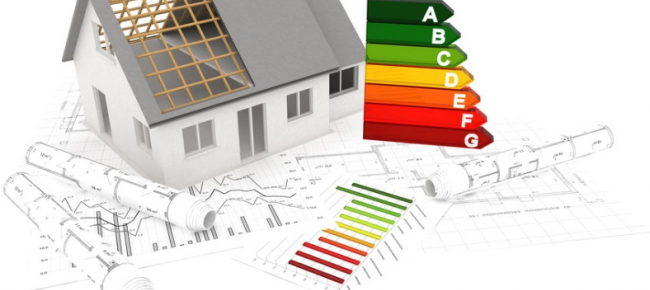Заголовок
Energy efficient buildings will help fight energy povertyCreated date
18 04 2022The European Economic and Social Committee (EESC) backs the Commission's proposal to update the Energy Performance of Buildings Directive. The new rules will fight structural long-term underinvestment in construction by introducing EU minimum energy performance standards, new requirements for Energy Performance Certificates and a building "renovation passport".
The updated directive on energy performance of buildings will help achieve an energy-efficient, high‑quality and fossil-free built environment, providing the tools to effectively tackle energy poverty and remedy structural long-term underinvestment in construction. With this in mind, the Committee adopted its opinion on the recast Energy Performance of Buildings Directive (EPBD) at its March plenary session, welcoming the fact that the new Commission proposal takes into account the issues highlighted in previous EESC opinions.
Commenting on the adoption of the document, the rapporteur Mordechaj Martin Salamon said the EESC wholeheartedly welcomes the EU approach as it boosts renovation of especially the worst-performing buildings and sets the European Union on a path of decarbonised heating and cooling: measures at EU level are more efficient in accelerating the necessary transition.
A strategy to alleviate energy poverty
The recent sharp price increases in energy and the prospect of high prices in at least the medium term have shown that it is more important than ever to put a strategy in place to alleviate and eradicate energy poverty.
In 2018 6.8% of people across the EU, approximately 30.3 million, were unable to keep up with utility bills, and so were at risk of having their supply cut off, and the recent developments have made this problem worse.
To secure decent, affordable and healthy housing for all, the EU should implement long-term concrete measures to improve the energy efficiency of buildings, including the safe removal of asbestos. This is all the more urgent, as fossil fuel-based heating and cooling will become more expensive with the rising costs of the EU Emissions Trading System (EU ETS) allowances.
Tangible measures to increase building energy efficiency
In order to achieve these results, the EESC strongly supports three targeted measures. Introducing at EU level some minimum energy performance standards, specifically for the worst-performing residential buildings, is a significant step forward, even though it remains up to Member States to decide whether the rest of the residential building mass should be covered by national standards.
Another important point is the increased requirements in terms of reliability and usability of the Energy Performance Certificates (EPCs). Considering their central role in improving the energy efficiency of building stock, it is important to upgrade them to a digital format, with good-quality, detailed content, calculation methods, affordability, access and publication. However, an EPC in paper format should always be available for citizens who need one.
Finally, establishing a building "renovation passport" by 2024 is also an excellent proposal: it will give consumers easier access to information and lower costs when planning the renovation of their buildings. The EESC questions its effect, as the passport is not mandatory, but acknowledges that the passport also includes wider benefits related to health, comfort and the building's response to climate change.
Background
The European Commission proposed a revision of the Energy Performance of Buildings Directive in December 2021. The new directive updates the existing regulatory framework to match, on the one hand, the European Green Deal's objective of achieving climate neutrality by 2050, and, on the other, the need for social support.
The intention is to boost building renovation in terms of number of renovation projects and of deeper renovation, with a two-fold ultimate goal: achieving highly energy efficient and decarbonised building stock by 2050, and making more accessible and affordable financing possible under the recovery and resilience plans using the EUR 750 billion of funds in the recovery package.















